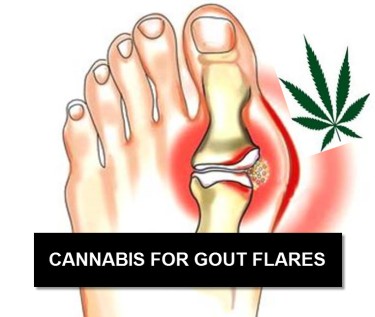
Cannabis And Rheumatoid Arthritis – What Are The Best Options?
Rheumatoid arthritis (RA) is a type of autoimmune disease caused by inflammation. It occurs when healthy cells are attacked by the immune system, resulting in extreme inflammation characterized by intensely painful swelling in some parts of the body.
The joints are most commonly affected, although it can also occur in the knees, wrists, and hands. When a joint is affected, its lining becomes inflamed and the joint tissue is damaged. This tissue damage can lead to complications and chronic pain, and if left untreated, can result in birth defects. Symptoms of RA can come on slowly and get worse over time; These include swollen, tender joints, fatigue, joint stiffness, loss of appetite and fever.
Many people who have rheumatoid arthritis also have disorders of the skin, eyes, and internal organs, including the kidneys, heart, lungs, blood vessels, bone marrow, or nerve tissue.
Diagnosing rheumatoid arthritis can be difficult because its symptoms resemble those of other conditions. The irony, however, is that early diagnosis is critical to successful disease management. Doctors often have to prescribe medication, although medical experts have found that remissions are common even when taking medication. Nonsteroidal anti-inflammatory drugs (NSAIDS) are widely used to treat RA, as are biologics and targeted synthetic disease-modifying anti-inflammatory drugs.
Despite this, many patients with RA still do not find the relief they need while suffering from the side effects of these drugs.
How cannabis can help
Medical marijuana has garnered attention as a potential treatment for rheumatoid arthritis. Because there is still no known cure for the condition, treatment focuses on improving the patient’s quality of life.
Cannabis has long been touted for its anti-inflammatory properties, so it’s not surprising that it works well for rheumatoid arthritis. Patients diagnosed with a variety of inflammatory conditions have been able to live better lives free of NSAIDs, opioids and steroids – all of which have notorious side effects. Since the human body has CB1 and CB2 receptors, with most CB1 receptors found in the central nervous system and CB2 receptors in the immune cells, problem areas can be treated effectively when we treat them with the plant’s main cannabinoids – THC and CBD – treat be purposeful.
We already know that the cannabis plant has several active compounds that studies have shown may benefit people with rheumatoid arthritis. Products containing both THC and CBD can trigger apoptosis, or cell death, in immune cells, including macrophages and T-lymphocytes, which reduce chronic inflammation in the body.
While large-scale studies on this topic are lacking, there are some smaller but promising studies. The first studies examining the effects of cannabis on rheumatoid arthritis took place in 2006; For this study, the researchers used Sativex, a pharmaceutical drug made with cannabinoids found in cannabis. They found that subjects reported an improvement in pain and sleep, with only mild side effects.
Another 2016 study looked at the use of CBD gel in test animals with joint pain and inflammation. The researchers found that the CBD gel was effective in reducing both, and no side effects were noted. Then, one in 2021 involved researchers analyzing the effects of medicinal cannabis on 319 human subjects suffering from rheumatoid arthritis and other conditions. Questionnaires were used to determine how cannabis use affected their sleep quality and pain levels, and the researchers concluded that cannabis was indeed beneficial for them.
However, the lack of studies on rheumatoid arthritis and cannabis has not stopped people from taking medication with it. An anonymous questionnaire sent to Australian medical cannabis patients in 2005 showed that 25% of patients used cannabinoid products to treat their symptoms. There are also many anecdotal accounts of patients who have found success in managing their symptoms thanks to cannabinoids.
How to treat RA pain with cannabis
As previously mentioned, there are two main cannabinoids in cannabis: THC and CBD.
THC (Tetrahydrocannabinol) is psychoactive and can make you feel high, while CBD (Cannabidiol) does not. Both compounds have incredible healing properties for inflammation and pain, and there are already several studies highlighting their benefits for pain and inflammation.
There are many ways you can use them to take medication to treat rheumatoid arthritis pain. THC can be taken in small or higher doses to relieve pain while also helping with sleep, although it may not be suitable for seniors or the elderly who are inexperienced with its psychoactive effects. CBD is also widely used in children and is well tolerated by all age groups.
The most effective way to benefit from its therapeutic properties is to try topical cannabis products and apply them to the affected area. Topical products are available in a wide range of products ranging from balms to lotions and ointments. They can be formulated with other ingredients like camphor and menthol to enhance their pain-relieving properties.
Oral intake through daily capsules, edibles, or sublingual tinctures has also been shown to be effective for arthritis pain. Patients with sleep issues may choose to smoke indica cannabis strains or consume THC edibles to help them fall asleep. With so many options, there’s no reason people with rheumatoid arthritis need to be left in the dark or restricted to dangerous drugs with side effects. Speak to a doctor today and find out how cannabis can help you.
ARTHRITIS AND CANNABIS, READ MORE…

CANNABIS STRAINS FOR ARTHRITIS, WHAT WORKS BEST?
OR..

CANNABIS FOR GOUT FLARE UPS WHAT WE KNOW SO FAR!

Post a comment: